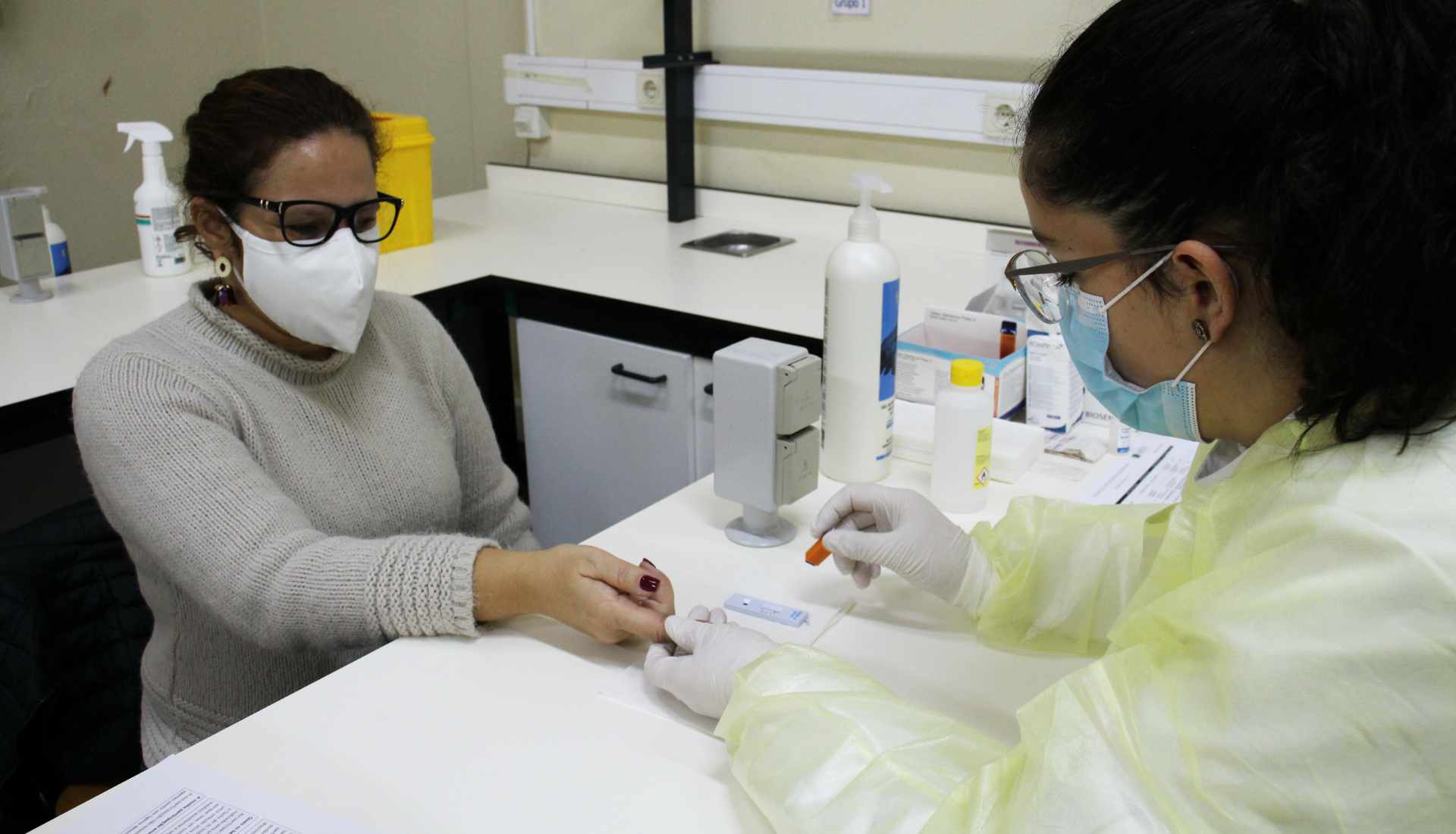The University of Porto will start, already at the beginning of June, with the carrying out of individual serological screening on teaching and non-teaching employees who volunteer for this purpose. This is the first phase of a screening, unprecedented among the Portuguese higher education institutions, that has the objective of gauge the degree of exposure of the academic community to the new coronavirus (SARS-CoV-2).
As previously announced, the screening will be led by Instituto de Saúde Pública da U.Porto (ISPUP) and will consist in carrying out a “rapid test” – analysis of a drop of blood, collected through a finger prick – that, in about 10 minutes, “says” if the person has already produced antibodies – of the IgM and IgG classes – specific for the virus, and, if so, if the infection is recent or old. It will be furthermore carried out a brief epidemiological survey to assess the possibility of contact with suspect or confirmed cases of COVID-19.
To the members of U.Porto whose test indicates the presence of antibodies of the IgM class (indicating recent infection), a free on-site diagnostic test for COVID-19 will be available, through a swab.
The collect and processing of the samples will be made by doctors, nurses and ISPUP technicians. The results of the tests are confidential and communicated only to the employee himself.
Who, where and when?
Although it is planned to extend the tests to students, in this first phase, the serological screening will then only cover teaching and non-teaching staff and will take place, stepwise, in the three campuses of the University, where a specially created structure will be set up in places to be designated.
The first “round” of tests will take place from 1 to 12 June, in the Polo Central, covering the faculties such as Belas Artes (FBAUP), Direito (FDUP), Farmácia (FFUP) and the Instituto de Ciências Biomédicas Abel Salazar (ICBAS, but also the Centro de Desporto da U.Porto (CDUP-UP), or the Serviços de Ação Social da U.Porto (SASUP).
From 15 to 26 June, it will be the turn of the Polo da Asperela, that includes, for example, the faculties of Desporto (FADEUP), Ciências da Nutrição e Alimentação (FCNAUP), Economia (FEP), Engenharia (FEUP), Medicina Dentária (FMDUP), Medicina (FMUP) and Psicologia e Ciências da Educação (FPCEUP).
The last “round” of this first phase will take place from 29 June to 10 July and will have as target the community of the Polo do Campo Alegre, where the Arquitetura (FAUP) Ciências (FCUP) and Letras (FLUP) faculties are included.
The employees who wish to participate in the serological screening should express their availability to the Unidade de Saúde Ocupacional, by sending an email to s_ocupacional@med.up.pt with their name, mechanic number, organic unit, and telephone contact.
Those interested will then be contacted to schedule the test, according to their availability and the announced schedule. For organisational and security reasons, the test will be done only after the confirmation of the scheduling by the Unidade de Saúde Ocupacional.
The rehearsals already started
As a way of rehearsing all the necessary screening procedures, the initiative already started to be “tested” this Thursday, on a sample of staff from the Reitoria who are already in face-to-face work.
It was also up to the Reitor of U.Porto himself to do one of the first tests, whose result was…negative. “It is important that people understand that this is not painful. It a simple finger prick and gives us information in a matter of minutes”, referred António de Sousa Pereira.
Regarding the importance of the screening to the academic community, the Reitor remembered that “we are in a phase when we have to understand how we react to the disease as a population. We know that many people have had contact and that did not develop the disease and that probably acquired immunity, but all this is on the basis of the assumption. This work will allow us to have deeper knowledge on how, as a collective, we react to the contact with the virus”.
For António de Sousa Pereira, the results of the screening to the U.Porto community may also “help to understand how the Portuguese population is reacting to the virus” what will allow to “help take action much more safely in the future.”
The Rector also explained that, once the screening to the staff is concluded, “we will move forward with the students”, and the work must be completed “by the end of the year”. ”Our intention is to take a photograph of this population now, but repeat that photograph over time, to understand how the community evolved and if it has acquired immunity to the virus”, remarked.
The same idea was emphasised by Henrique Barros, ISPUP president and coordinator of this study, who praised the importance of this screening to deepen the scientific knowledge about COVID-19.
“The Universidade do Porto workers, by volunteering to take the test and repeating it after a few months, will help us to understand if, in fact, it perpetuates that memory [immunity], or if, on the contrary, it fades and disappears, making us susceptible again. And this is important because it can give us an idea about what we can expect about the vaccine”, referred the epidemiologist, before remarking: “Our community is helping to do science, to do knowledge”.
It should be recalled that U.Porto is thus one of the first institutions in Portugal to proceed with serological testing to assess the exposure of its community to the new coronavirus. In a recent visit to the University, the Science, Technology and Higher Education Minister, Manuel Heitor, had already left praise for the initiative, considering that it “deserves to be replicated in other institutions in the country”.



